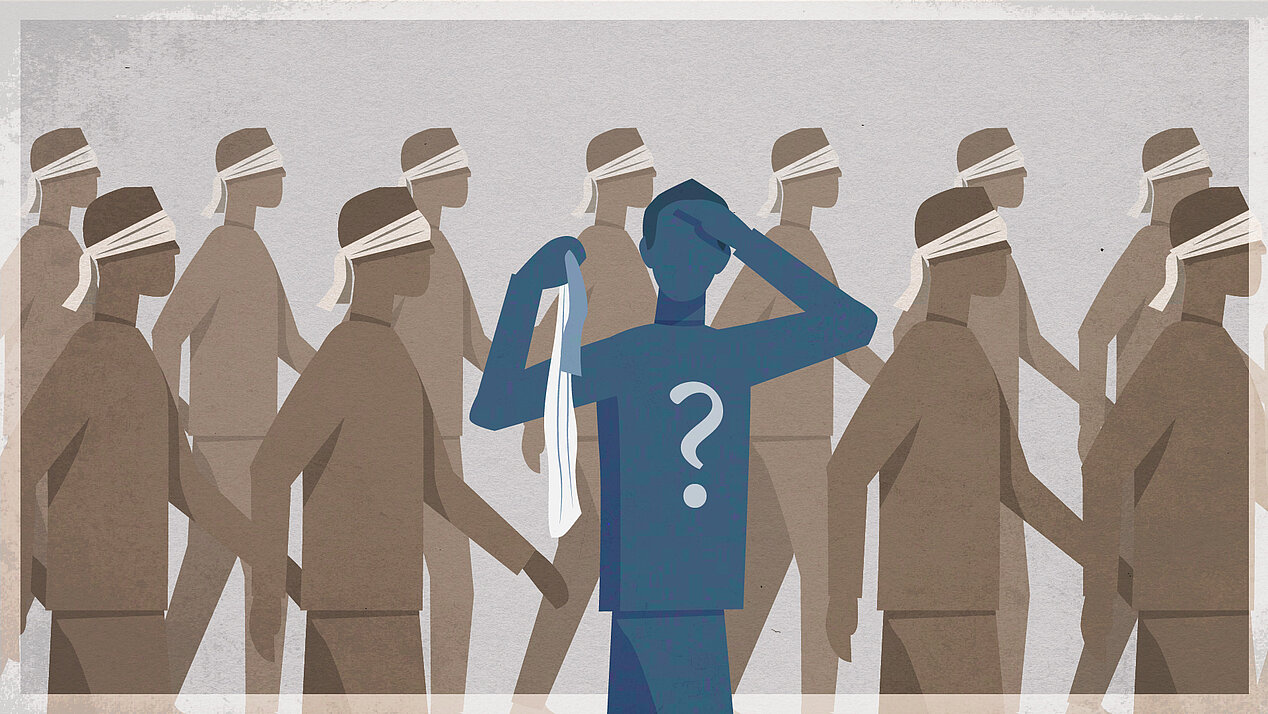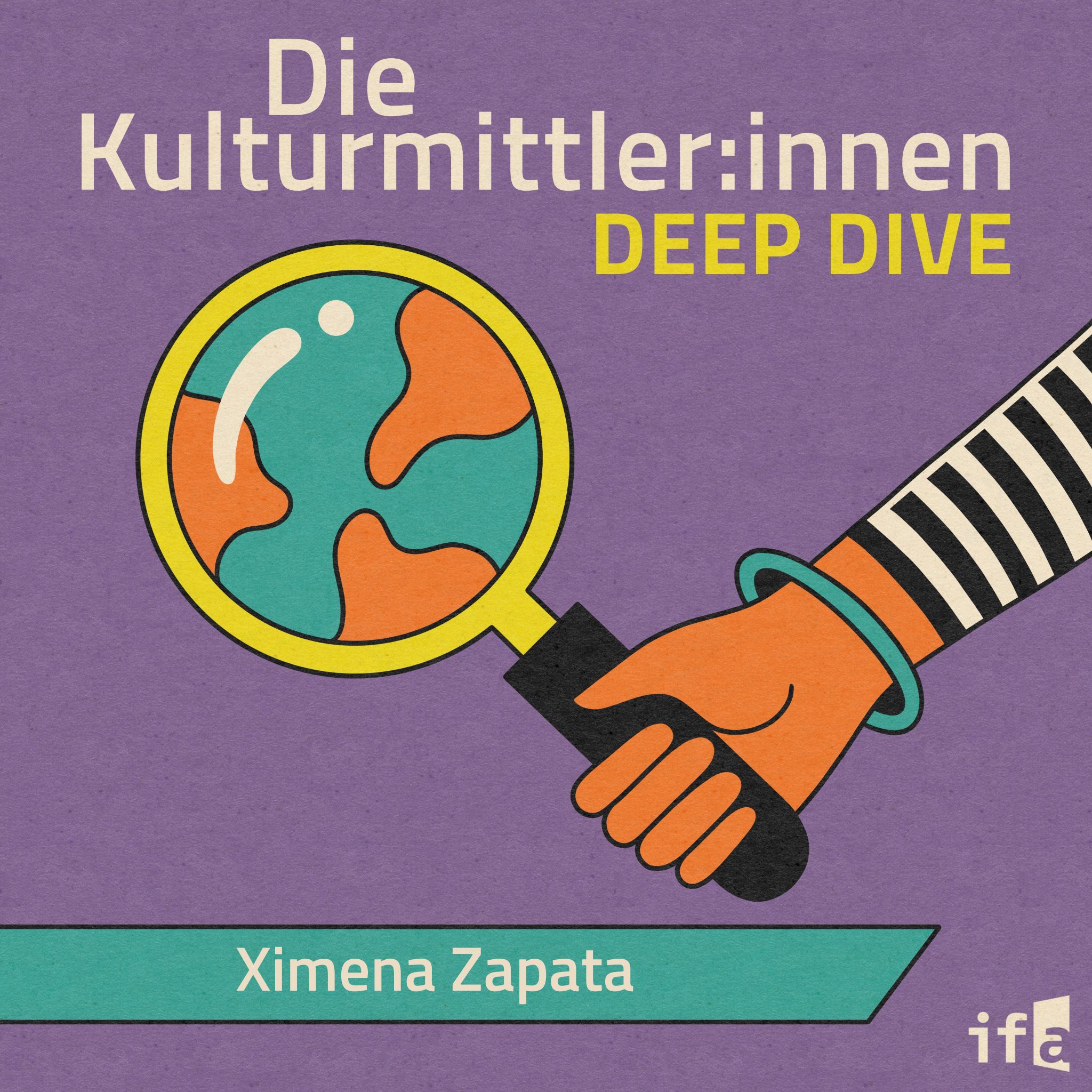The widespread spiritual crisis is in fact much more brutal than the economic crisis. We have been turned into words, numbers, a herd. We can say what we like, but it is all meaningless. The tone is set by egoists and cynics. This is not even based on mature reflection, it is just how it is. Once we appropriate this attitude for ourselves we suddenly find that things do not seem so strange. This is exemplified in the way a country can lead its people into a war under the guise of fighting terror (UK) or indulge in large-scale spying on its allies (USA). Individuals such as the young, white, right-wing radical in Norway who reached for his weapons and simply went out to kill.
This has nothing to do with ideology but is purely a case of acting on instinct. How are these changes viewed by people outside the once-privileged Western world? If in democracies it is still a minority that makes decisions for the majority, then how do they differ from dictatorships? Why should we seek our dream of happiness in a place where a nightmare is raging? Is it worth it?
Hungary is a good example of how free elections have been directly dominated by the desire for profit. It was once considered one of the most progressive countries in the eastern bloc. Now it has a democratically-elected, right-wing populist government that, apart from its parochial nationalism, also does not shy away from restricting freedom of speech.
This example is symptomatic of so-called democracies in which elected majorities are created based on the principle of making a quick profit but without any sense of obligation to the ideal of an open society. On the contrary, ‘democracies’ are created in which daily abuses of power can and do take place. In extreme cases, they are based on Mafia-type power structures.
Turning a Nightmare Into an Opportunity
So what is to be done? I believe this nightmare harbours an opportunity. For the first time, the big question mark that is hanging over democracy provides an opportunity for the whole of humankind to address this issue afresh. We are now in a position to rethink it and the whole world can get involved in the debate about what democracy really means and how we should turn it into reality.
So what is to be done? I believe this nightmare harbours an opportunity. For the first time, the big question mark that is hanging over democracy provides an opportunity for the whole of humankind to address this issue afresh.
This has become a burning issue in places where democracy has long been treated as an old friend – in Europe and the USA. Perhaps we will now finally realise that democracy is not finite but is something that has to constantly argued. It is not enough to reduce the idea of democracy to a game of majorities. We need to look back at its underlying principles, which means being truly independent in our thoughts and actions. In short, we need to return to the ideas of the Enlightenment. This has to be the basic premise.
It may be possible to move forward without this, but it is very probable that we will then have to fear and tolerate people and their greed. We will have to accept that people simply follow their instincts and make these the basis for their decisions.
They speak of politics but actually mean business. They create a mountain of slogans, a foam bath, a tidal wave that buries the truth of our situation.
I believe it is essential that we carry out this fundamental investigation into the meaning of democracy. If we are to do this, then right from the start we need to free ourselves from the shackles of the unequal distribution of global profit. We have to create a level playing field for every single person, regardless of their ethnicity, culture and language, which goes beyond the boundaries of East and West and leads us to finally understand who we really are. What is my place in this world? How can I enter into an equal dialogue, argument and competition with all the other ‘Is’ in the world? How can we all come together? By nurturing this ‘I’ we give wings to the whole of humanity.
We have to create a level playing field for every single person, regardless of their ethnicity, culture and language, which goes beyond the boundaries of East and West and leads us to finally understand who we really are.
In July 2013, during my last month at the Wissenschaftskolleg in Berlin, the Egyptian people and its army were squaring up to each other on the streets of Cairo. Every day, worrying reports were emerging from the conflict. As a result, the Wissenschaftskolleg invited three Arab and one Turkish academics to take part in a panel discussion. The two-hour event produced some very fierce and heated debate. The argument revolved around the question of who held the power in Egypt – the military with its ‘Western’ background or the masses on the street, backed up by Islamic fundamentalists.
The Democracy of Ignorance
The panel members fought each other almost as hard as the people in Egypt, while feelings among the audience became increasingly heated. I sat quietly and listened, but gradually I felt myself being overwhelmed by a doubt that I could not shake off. Of course I am concerned about the safety of my friends in the Middle East.
But during the discussion I found myself asking why the four panel members were spending two hours arguing about who should hold power in Egypt but never said a word about the future of the country and the ideological principles that should provide the basis for its democracy. In other words, how can a country that is rooted in ancient Islamic traditions use self-reflection to transform itself into a modern state?
If this is not what it was all about, why was there so much fighting on the streets? How does ‘democracy’ gain if power is transferred from a military dictatorship to a religious dictatorship? How can this be deemed a successful transformation?
In the end I could not keep quiet any longer and had to have my say. I talked about China‘s new cultural consciousness during the 1980s, shortly after the Cultural Revolution, in order to demonstrate what China‘s cultural modernisation in the 20th century was all about. I also spoke about the quest for the essence of Chinese thought in our modern society. And then I quoted the words of my friend, the great Arab poet Adonis: “I am against Islam”. With these words, he sets himself against a religious autocracy that abuses its power. In so doing, he provides me with a living example of what a modern Arab culture could look like: a great man of letters, an individual, a person who dares to challenge himself.
Our expectations of a modern democracy lie with this kind of independent thinker, someone who is capable of forming their own opinions, a person who has awareness and self-awareness. Globalisation has created a new context for democracy, but it is not only in the Arab world and China that the issue needs to be debated afresh. The question of democracy must now be addressed again in a somewhat confused Europe and a USA that has taken a blow to its self-confidence. There may be confusion about global values, but this does not mean that there is no longer a values system. It means that individuals are faced with greater challenges, particularly that of reflecting on their own values. We should not blindly follow the clamouring masses but start to think and look critically at every problem before making up our own minds.
The responsibility for this reflection on peoples, culture, tradition and the purpose of history now lies with the individual. This applies to every area, including business, politics, society and culture, language and aesthetics. Perhaps more than anyone, it is poets who have long been representative of these independent thinkers.
Perhaps more than anyone, it is poets who have long been representative of these independent thinkers.
Translated from Chinese by Karin Betz








